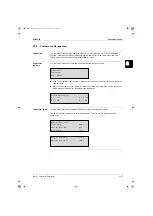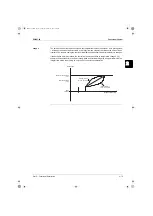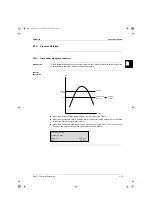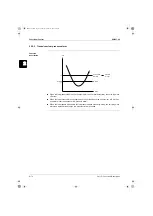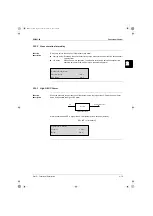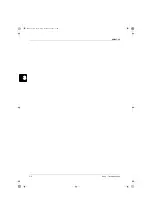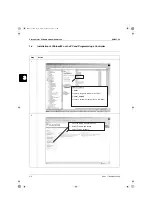
ESIE07-05
Functional Control
Part 2 – Functional Description
2–71
3
2
4
5
1
2.18
Capacity Control
Introduction
Cooling capacity control is infinitely variable by means of a capacity slide controlled by a
microprocessor system. Each unit has infinitely variable capacity control from 100% down to 6.25%
(four compressor units), to 8.3% (three compressor units) to 12.5% (two compressor units). This
modulation allows the compressor capacity to exactly match the building-cooling load. The result is a
decrease in chiller energy costs, particularly at the part-load conditions at which the chiller operates
most of the time. Additionally, in some cases there should be the possibility to avoid inertial tank in the
water circuit.
Function
description
The compressor capacity, moving of the sliding vane, is done by oil pressure. The controller will decide
to feed or to drain oil from the capacity control piston compartment in order to load or download.
■
When the unload valve (B) is energized, the valve will feed oil to the piston and the slide will move
to the right (loading down).
■
When the load valve (A) is energized, the valve (A) will open. The discharge pressure will push the
sliding vane to the left and the oil will drain via the loading valve.
Number of pulses
The compressor load regulation is controlled by a fixed number of pulses to the two solenoid valves,
draining and feeding oil in the slide valve chamber.
With the default settings, the compressor will load from 25% capacity to 100% capacity in 15 pulses.
Suction
Pressure
LOAD
UNLOAD
Discharge
Pressure
Capacity Control Mechanism
Spring
Oil Supply
NC
NC
B
A
Oil Vent
Piston
Number of Pulses
To Load Comp.
Number of Pulses
To Unload Comp.
15
15
ESIE07-05.book Page 71 Friday, December 21, 2007 3:21 PM











